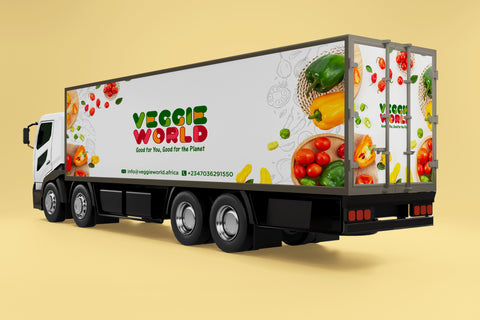Our Business
Growing a Sustainable Future, One Veggie at a Time
At Veggie World Ltd., we believe that a healthy planet and healthy people go hand-in-hand. Sustainability is not just a buzzword for us; it's a guiding principle embedded in every aspect of our operations, that's why we are committed to growing a sustainable future through our innovative approach to the fruit and vegetable value chain.
From utilizing renewable energy sources to power our business to advanced climate-smart practices like controlled environment agriculture, we optimize growing conditions for each crop, maximizing yield and minimizing water usage and greenhouse gas emissions to promote efficient use of non-renewable resources and food security, while reducing our environmental impact.
Our dedication to sustainability extends beyond the field; we prioritize eco-friendly packaging and transportation methods to further minimize our carbon footprint. Leveraging our robust cold chain infrastructure, we're committed to eradicating post-harvest losses, ensuring the freshness and quality of our produce from our greenhouses straight to consumers. By embracing these sustainable practices, we are not only safeguarding the planet for future generations but also ensuring the long-term viability of our business.
From Seed to Plate; A Broken Value Chain
The traditional vegetable value chain faces significant multifaceted challenges that limit access to fresh, high-quality produce all year round and contribute to environmental issues that require innovative solutions. Problems like;
- Climate Change: Extreme and unpredictable weather patterns are a direct consequence of climate change which are devastating traditional food production systems and adversely affect food security.
- Seasonality: Traditionally, the availability of fresh vegetables fluctuates depending on the season leading to price spikes occasioned by severe shortages and limited choices for consumers.
- Loss and Waste: Inefficiencies in harvesting, transportation, and storage contribute significantly to food waste down the value chain, leading to damage and spoilage of produce.
- Nutrition Loss: Traditional transportation and storage methods often result in a decline in the nutritional value of vegetables between harvest and consumption.
- Low Productivity: Low productivity among open-field farmers, results in decreased yield per hectare and heightened food insecurity due to challenges posed by climate change, limited adoption of advanced farming techniques, and technological constraints, making it difficult for farmers to meet market demands effectively.











